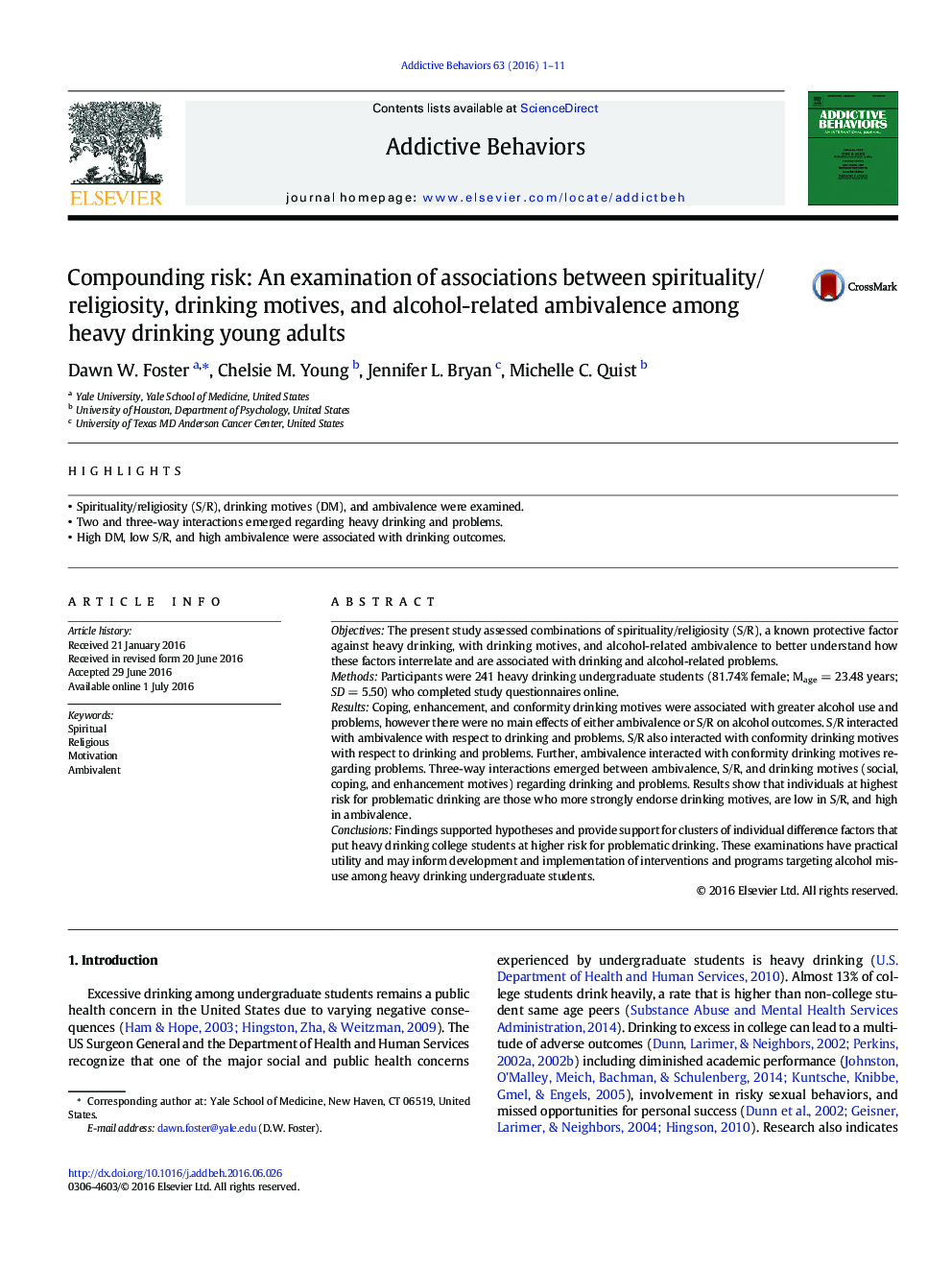| کد مقاله | کد نشریه | سال انتشار | مقاله انگلیسی | نسخه تمام متن |
|---|---|---|---|---|
| 898555 | 1472508 | 2016 | 11 صفحه PDF | دانلود رایگان |
• Spirituality/religiosity (S/R), drinking motives (DM), and ambivalence were examined.
• Two and three-way interactions emerged regarding heavy drinking and problems.
• High DM, low S/R, and high ambivalence were associated with drinking outcomes.
ObjectivesThe present study assessed combinations of spirituality/religiosity (S/R), a known protective factor against heavy drinking, with drinking motives, and alcohol-related ambivalence to better understand how these factors interrelate and are associated with drinking and alcohol-related problems.MethodsParticipants were 241 heavy drinking undergraduate students (81.74% female; Mage = 23.48 years; SD = 5.50) who completed study questionnaires online.ResultsCoping, enhancement, and conformity drinking motives were associated with greater alcohol use and problems, however there were no main effects of either ambivalence or S/R on alcohol outcomes. S/R interacted with ambivalence with respect to drinking and problems. S/R also interacted with conformity drinking motives with respect to drinking and problems. Further, ambivalence interacted with conformity drinking motives regarding problems. Three-way interactions emerged between ambivalence, S/R, and drinking motives (social, coping, and enhancement motives) regarding drinking and problems. Results show that individuals at highest risk for problematic drinking are those who more strongly endorse drinking motives, are low in S/R, and high in ambivalence.ConclusionsFindings supported hypotheses and provide support for clusters of individual difference factors that put heavy drinking college students at higher risk for problematic drinking. These examinations have practical utility and may inform development and implementation of interventions and programs targeting alcohol misuse among heavy drinking undergraduate students.
Journal: Addictive Behaviors - Volume 63, December 2016, Pages 1–11
